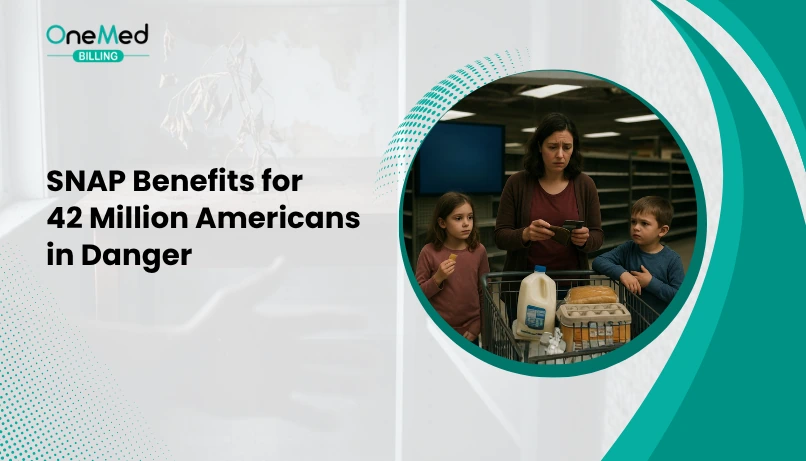Government Shutdown Puts SNAP Benefits for 42 Million Americans in Danger
- October 31, 2025
As the U.S. federal shutdown enters its 28th day, the effects are no longer confined to Capitol Hill. Forty two million Americans face the prospect of losing critical food assistance within hours, while air travel across the country is already strained after air traffic controllers missed their first paycheck. The shutdown is translating into empty refrigerators, crowded food banks, delayed flights and growing economic risk for communities that depend on federal support.
What Is Happening Right Now in the U.S.?
Lawmakers remain locked in a spending standoff with no immediate resolution. The result: key programs and paychecks tied to federal funding are at risk. The Supplemental Nutrition Assistance Program, SNAP, faces a suspension of benefits that could hit roughly one in eight people in the United States. At the same time, thousands of flights were delayed or canceled as essential aviation staff missed pay.
SNAP and the Immediate Food Crisis
SNAP helps about 42 million Americans buy groceries each month. Benefits load to EBT cards on a set schedule, and families plan meals around that deposit. With payments set to be suspended, food banks and pantries are bracing for a sharp surge. Many groups are warning about longer lines, faster stockouts, and tighter limits on basics like rice, milk, eggs, and canned goods as more families, seniors, and children ask for help.
The Department of Agriculture has said it cannot prevent a suspension without action from Congress. That leaves millions facing hard choices between paying the light bill and buying food. Households may switch to cheaper items, stretch meals, or skip fresh produce and protein. Seniors on fixed incomes will feel the pinch first. Parents in rural areas may struggle to reach pantries that have shorter hours or limited supplies. Grocers could also see more declined EBT transactions and last minute cart changes as people try to make every dollar count.
Air Travel and Public Safety Strains
Unpaid workweeks have hit air traffic controllers, and the impact is showing up fast. Nearly 7,000 flights were delayed or canceled on a recent Tuesday as more controllers called in sick or stayed home. With fewer people in the tower and centers, managers slow traffic to keep it safe. That means ground holds, reroutes, longer taxi times, and missed connections. Airlines warn the system runs thin when experienced controllers are absent, so even minor weather or technical issues can ripple into a large schedule mess.
Safety worries rise when stress and fatigue build. Controllers cover longer shifts, supervisors jump on the boards, and training gets pushed aside. The workload goes up, focus gets harder, and recovery time shrinks. Travelers feel it in longer security lines, last minute gate changes, and fewer rebooking options. Crews time out, planes end up in the wrong cities, and the next day starts behind. Every extra day of reduced staffing raises the odds of more delays and more risk.
Economic Fallout and Longer Term Risks
Economists expect real damage if the shutdown keeps going. If it stretches past next week, some estimates say it could cut about 0.3 percent from quarterly GDP. That loss shows up fast in everyday life. Delayed paychecks mean less spending at grocery stores, gas stations, and child care. Small businesses near federal offices, bases, and labs see fewer customers. Contractors pause projects and hiring. Vendors wait on invoices, tap credit cards to make payroll, and rack up late fees.
Uncertainty also slows bigger plans. Hospitals hold off on equipment purchases tied to grants. Universities pause research that needs federal approvals. Airports delay upgrades. Lenders get cautious, raising rates or tightening terms for businesses that rely on federal work. The longer agencies stay closed, the bigger the backlog, the higher the restart costs, and the more careful households and employers become with cash. Every extra day adds to the bill and drags on the recovery even after the shutdown ends.
Food Support Systems Under Heavy Load
Lines at food banks are getting longer, and more first-time visitors are asking for help. Families that depend on a mix of benefits, church pantries, and community meals are running into gaps, so the load shifts to local charities. Volunteers are staying late, but shelves turn over quickly, and many sites are putting limits on rice, milk, and canned goods so supplies last through the week. Fresh items go first, staple boxes get smaller, and some pantries run out before closing time.
The strain reaches beyond food. Parents ask for diapers and formula. Seniors need low-sodium or diabetes-friendly options that are hard to stock. Small nonprofits are trying to coordinate deliveries, recruit drivers, and raise money at the same time donations are slowing. As the days stack up, it takes more calls, more miles, and more hands just to keep families fed until regular support comes back.
How the Government Shutdown Is Hurting People ?
The shutdown is already touching daily life. Kids who count on school or community meal programs may miss meals. Seniors on fixed incomes are choosing between groceries and medicine. Working families living paycheck to paycheck are stretching rent, utilities, and basics with savings that are running out.
As paychecks and benefits are delayed, stress builds, lines at food banks grow, and unpaid bills stack up. Community groups are trying to help, but resources are limited. Each day without a deal adds more hardship and uncertainty for households that rely on steady wages or federal support.
Practical Steps for People Affected
If you or someone you know is affected by lost benefits or missed paychecks, consider the following actions:
- Contact your local food bank or pantry to learn about emergency distributions and eligibility rules.
- Check state and local assistance programs. Some states and municipalities offer emergency food or cash aid during federal disruptions.
- If you are a caregiver, enroll in or maintain state-level programs like WIC where available and applicable.
- Reach out to community centers, places of worship and nonprofits that run supplemental meal programs.
- Keep in touch with your employer and union if you work in a federally funded role to know your rights and support options.
- Follow trusted local news and official government channels for updates on program restorations and deadlines.
Conclusion
The shutdown has escalated from a political impasse to a national challenge affecting food security, transportation and economic stability. Without swift congressional action, the human cost will continue to mount. Communities and charities are stepping in, but their capacity is limited. The choices made in Washington in the coming days will determine how many families face empty shelves and which services remain available when people need them most.


